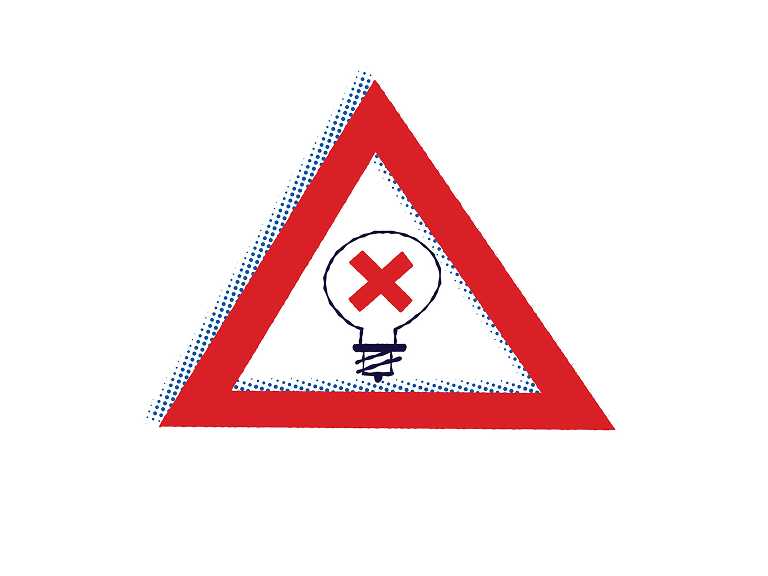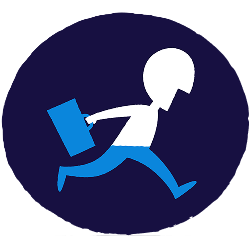During a Power Outage
A power outage has far-reaching consequences during crises. Within a few hours, telecommunications networks will gradually stop working. Everyday activities, from cooking to flushing the toilet, will become complicated. Both public and private services will be significantly limited. That’s why it is essential to know how to prepare for this situation, how to act during it, and what to avoid.
If the lights are off and the television is not working, the cause may be a faulty appliance, a temporary power cut or an issue with the household wiring:
- Check whether the lights work in other rooms and if other appliances are functioning.
- Check the circuit breakers.
- See if there are lights on in neighbouring flats or houses.
We can verify whether the power outage affects our area or is just a planned shutdown by visiting the website of our electricity provider.
If we discover that the power lines have been damaged, for example due to a fallen tree, we should not approach them and should report it to the local authority or the electricity provider.
Keep in mind that payment cards and ATMs do not work during a power outage. We should keep coins and banknotes of various denominations at home for such situations
If the power goes out, it is necessary to unplug all electrical appliances. The easiest way is to turn off the main switch (circuit breaker). This protects appliances from damage when the electricity comes back on. A power outage does not affect the quality of tap water, so we can drink it without concern.
Food
How to work with emergency food supplies?
- In winter, some food can be stored outside. Store it in a way that protects it from animals, moisture, and direct sunlight.
How to handle the fridge and freezer?
- Keep fridge and freezer doors closed. Open them as little as possible so that food stays cold for as long as possible.
- To maintain a lower temperature in the fridge, move some items from the freezer into the fridge.
- Check the floor, as water may leak out during thawing.
- Eat thawed food as soon as possible or cook it before refreezing.
How to prepare food?
- Have supplies of food that do not need to be cooked.
- Some foods can be prepared by soaking in cold water — for example, couscous, instant porridge can be soaked and left to soften.
- Food can be prepared outdoors on a camping stove or grill. Always handle fire safely.
How to stay warm?
- Have enough warm clothing, shoes, and blankets for everyone in the household.
- Eat regularly and rest enough.
- Keep windows and doors closed to prevent heat from escaping.
Alcohol only provides short-term warmth, and consuming it during an emergency can be dangerous because it reduces alertness and impairs judgment. It’s best to completely avoid alcohol in such situations.
How to stay warm in a cold house or apartment?
- Keep the heat in just one room if possible and limit the use of other rooms.
- Close doors to unused rooms and seal any gaps. Cover windows with curtains or blankets.
- Put multiple layers of blankets or rugs on the floor.
- Wear warm, breathable clothing. You can also use multiple layers.
- To preserve heat better, all household members should spend time and sleep in the same room.
- Move beds to the warmest spot in the room and use all available blankets and covers.
How to handle heat?
In Czechia, we experience heat more often than severe frost. High temperatures can be hard not only for older people but also for young adults and children. A power outage makes the situation even more difficult.
- We should try to limit our time outdoors between 11 a.m. and 6 p.m., when the sun and heat are most intense.
- During the day, we keep windows closed. We open them only early in the morning or at night. We draw the curtains or blinds to prevent the sun from heating the rooms. While ventilating, we can place wet cloths or containers of reserve water by the windows.
- Small, more frequent meals are better in hot weather than one large meal. We should plan cooking in a way that avoids heating up the apartment when it is not possible to ventilate.
- We can cool down by wearing suitable clothing: light and breathable garments are best. If possible, we can cool our neck or wrists with water or a damp towel.
How to use the toilet?
- A large-scale power outage may disrupt water supply. The toilet can be flushed only once; after that, the tank will not refill.
- During a power outage and water supply interruption, use the toilet only if it is necessary.
- Use hand sanitizer to wash hands.
Emergency solution when the toilet is out of order: place a garbage bag inside the toilet bowl, add toilet paper, newspapers, or cat litter. After use, tie the bag carefully, place it inside two additional bags, and dispose of it with regular waste.
Pay attention to information from your municipality about the possible deployment of backup power sources (diesel generators) near your home, where you can charge your mobile phone, batteries, power bank, or use other electronics.
How to use a mobile phone?
- During a power outage, the mobile network may be overloaded or unavailable. We should use the phone only when absolutely necessary.
- We save the battery by limiting data downloads and avoiding unnecessary calls and messages.
What to do after the power supply is restored?
- Check all electrical appliances and lights in our home.
- Make sure the stove or other potentially dangerous devices are switched off.
- Check the condition of food stored in the fridge and freezer.



